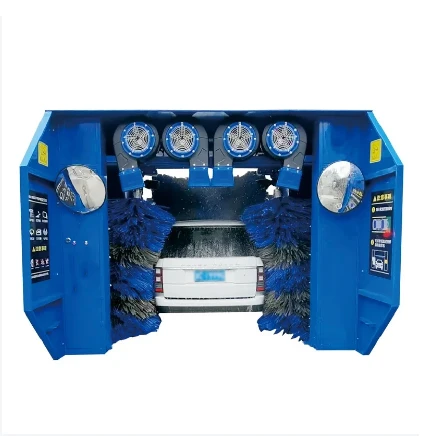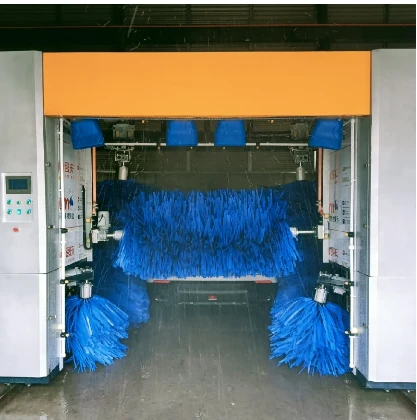
- Afrikaans
- Albanian
- Amharic
- Arabic
- Armenian
- Azerbaijani
- Basque
- Belarusian
- Bengali
- Bosnian
- Bulgarian
- Catalan
- Cebuano
- Corsican
- Croatian
- Czech
- Danish
- Dutch
- English
- Esperanto
- Estonian
- Finnish
- French
- Frisian
- Galician
- Georgian
- German
- Greek
- Gujarati
- Haitian Creole
- hausa
- hawaiian
- Hebrew
- Hindi
- Miao
- Hungarian
- Icelandic
- igbo
- Indonesian
- irish
- Italian
- Japanese
- Javanese
- Kannada
- kazakh
- Khmer
- Rwandese
- Korean
- Kurdish
- Kyrgyz
- Lao
- Latin
- Latvian
- Lithuanian
- Luxembourgish
- Macedonian
- Malgashi
- Malay
- Malayalam
- Maltese
- Maori
- Marathi
- Mongolian
- Myanmar
- Nepali
- Norwegian
- Norwegian
- Occitan
- Pashto
- Persian
- Polish
- Portuguese
- Punjabi
- Romanian
- Russian
- Samoan
- Scottish Gaelic
- Serbian
- Sesotho
- Shona
- Sindhi
- Sinhala
- Slovak
- Slovenian
- Somali
- Spanish
- Sundanese
- Swahili
- Swedish
- Tagalog
- Tajik
- Tamil
- Tatar
- Telugu
- Thai
- Turkish
- Turkmen
- Ukrainian
- Urdu
- Uighur
- Uzbek
- Vietnamese
- Welsh
- Bantu
- Yiddish
- Yoruba
Professional Automatic High-Pressure Vehicle Washing Machine Efficient
- Market Impact: The Data Behind Vehicle Washing Machines
- Engineering Superiority: Core Technologies Explained
- Manufacturer Comparison: Performance Analysis
- Customization Options for Diverse Needs
- Industry Deployment Scenarios
- Maintenance Strategies for Peak Performance
- The Future of Vehicle Washing Machine Technology

(vehicle washing machine)
The Transformative Market Impact of Modern Vehicle Washing Machines
Industrial vehicle cleaning operations face unprecedented challenges. Fleet managers report washing times reduced by 70% when upgrading from manual processes to automated vehicle washing machine
s. The global market projects 8.7% CAGR through 2030, fueled by logistics expansion and stricter environmental regulations. High-pressure vehicle washing machines alone conserve approximately 65% more water than traditional methods - critical when commercial wash facilities consume 40,000-100,000 gallons daily. These systems recover and recycle up to 85% of water, transforming environmental compliance from burden to advantage. For transport companies, adopting automatic vehicle washing machines decreases labor costs by $28,000 annually per station while boosting wash throughput by 200%. The ROI typically occurs within 14 months, explaining why 78% of fleet operators now prioritize automated systems in expansion plans.
Engineering Excellence: Core Technological Advantages
Today's vehicle washing machines integrate advanced technologies that redefine cleaning efficacy. Precision spray manifolds deliver 1,200-2,500 PSI at flow rates up to 20 GPM, removing even oxidized brake dust without surface abrasion. Programmable logic controllers (PLCs) manage chemical injection systems that adapt detergent concentrations based on vehicle surface contamination levels measured by optical sensors. Brushless motors with variable frequency drives cut energy consumption by 35% compared to conventional models while providing consistent torque. Most high-pressure vehicle washing machines incorporate stainless steel construction with nano-ceramic coatings, reducing corrosion maintenance by 90% and extending equipment lifespan beyond 15 years. Dual-filtration systems featuring hydrocyclonic separation and activated carbon filters enable water recycling compliance with EPA Tier 4 wastewater standards.
Manufacturer Performance Comparison
| Manufacturer | Pressure Range (PSI) | Throughput (Vehicles/Hr) | Water Recovery Rate | Automation Level | Energy Efficiency |
|---|---|---|---|---|---|
| CleaningTech ProLine | 1,800-2,500 | 35-45 | 92% | Fully Autonomous | ECM Motor System |
| HydroForce Industrial | 1,200-2,000 | 25-35 | 85% | Semi-Automatic | VFD Controlled |
| AquaDrive Systems | 2,200-3,000 | 40-55 | 78% | Fully Autonomous | Regenerative Power |
| WashMaster HeavyDuty | 1,500-2,200 | 30-40 | 88% | Manual Oversight | High-Efficiency Pump |
Leading models like CleaningTech ProLine demonstrate superior water reclamation essential for drought-prone regions. Their automatic vehicle washing machines incorporate AI-powered contamination detection, reducing chemical consumption by 23% compared to standard systems. HydroForce Industrial provides mid-tier reliability that's particularly effective for municipal fleet applications where budgets are constrained but reliability requirements remain high.
Customization Solutions for Varied Operational Needs
Configuring vehicle washing machines requires analyzing specific site parameters. Tunnel systems excel for high-volume logistics centers processing 50+ trucks daily, while gantry models better serve irregularly shaped specialty vehicles. Manufacturers now offer modular components including:
- Adjustable-width frames (8ft to 16ft clearance)
- Rotating undercarriage washers with 360° coverage
- Heated chemical injection for Arctic operations
- Overheight sensor bypass systems
For mining operations, high-pressure vehicle washing machines integrate volcanic dust abrasives filtration and reinforced spray nozzles. Food transport fleets typically require NSF-certified sanitizing systems with pH-balanced detergents. The latest control interfaces offer fleet profiling – storing 200+ vehicle templates with custom wash programs activated by RFID recognition as trucks approach the bay.
Industry Implementation Success Stories
Intermodal shipping company CargoFlow reduced tractor wash times from 45 minutes to 7.5 minutes after installing an automatic vehicle washing machine at their Rotterdam hub. The dual-gantry system processes 82 trucks daily with only 15% water consumption of their previous manual operation. Meanwhile, municipal transit agency MetroTrans solved winter reliability issues through custom heated-fluid vehicle washing machines capable of operating at -25°C. Their 12 custom-designed bays eliminated salt corrosion damage extending bus lifespans by 28%. Most impressively, quarry operator MineralWorks deployed a triple-stage vehicle washing machine reducing site dust contamination by 89% while recapturing 23 tons of aggregate monthly through advanced filtration - transforming waste into revenue.
Maintenance Protocols for Sustained Performance
Proactive maintenance ensures peak efficiency in vehicle washing machines. Weekly tasks should include nozzle inspection (clearing mineral deposits affecting spray patterns), hydraulic fluid level checks, and conductivity sensor calibration. Monthly procedures must encompass pump pressure verification against OEM benchmarks, thorough filtration system backflushing, and robotic arm joint lubrication using NSF H1 grease. Semi-annual professional servicing should assess motor brush wear, PLC software updates, and structural integrity scanning via ultrasonic thickness testing. Operators using high-pressure vehicle washing machines must replace rotary joint seals every 18,000 cycles and conduct complete water reclamation system servicing before winter months. These protocols typically maintain 96% operational uptime while preventing the average $17,500 repair costs associated with major system failures.
Evolution Ahead: The Next Generation of Vehicle Washing Machines
Emerging technologies promise revolutionary changes to automatic vehicle washing machine operations. Solar thermal integration will reduce energy needs by preheating wash water in southern climates. HydroJet AI systems now in development utilize computer vision to identify surface contaminants, automatically adjusting pressure profiles across vehicle surfaces - demonstrated to enhance cleaning effectiveness by 40% in prototype testing. Future vehicle washing machines will likely incorporate graphene-based filtration membranes that recover 98% of water while capturing microscopic particulates down to 0.1 microns. Wireless charging docks for electric fleet vehicles during cleaning cycles represent another development frontier. The convergence of these innovations positions vehicle washing machines as strategic operational assets rather than utilitarian facilities, transforming them into profit centers through resource optimization and operational intelligence.

(vehicle washing machine)
FAQS on vehicle washing machine
Q: What is a vehicle washing machine?
A: A vehicle washing machine is an automated device that cleans automobiles using water and detergents. It efficiently removes dirt and grime from cars, trucks, or buses. Various models suit different vehicle sizes and cleaning needs.
Q: How does a high pressure vehicle washing machine work?
A: A high pressure vehicle washing machine uses powerful water jets to blast away tough dirt and debris. It often includes rotating nozzles for deep cleaning. This system conserves water while ensuring thorough, fast results.
Q: What are the advantages of an automatic vehicle washing machine?
A: An automatic vehicle washing machine saves time and labor through hands-free operation. It delivers consistent cleaning quality every time. Moreover, it reduces water consumption and maintenance costs.
Q: Can a vehicle washing machine handle all types of vehicles?
A: Yes, vehicle washing machines are designed for various vehicles like cars, SUVs, or trucks. Specific models support larger vehicles, such as buses, with adjustable settings. Always verify compatibility based on size and features like high pressure.
Q: Where can I buy a reliable automatic vehicle washing machine?
A: You can purchase automatic vehicle washing machines from manufacturers, authorized dealers, or online retailers. Look for reputable brands offering high-pressure or fully automated models. Ensure the machine meets your specific installation and operational requirements.
-
Integrating Aqua Tunnel Car Wash in Shopping CentersNewsJun.24,2025
-
Gas Station with an Auto Car Wash MachineNewsJun.24,2025
-
Efficiency in Your Aqua Tunnel Car Wash: Power & Water-SavingNewsJun.24,2025
-
Car Wash Business with Advanced Auto Car Cleaning MachinesNewsJun.24,2025
-
Balancing Setup Costs with Aqua Tunnel Car WashNewsJun.24,2025
-
Aqua Tunnel Car Wash: Eco-Design for the Energy-Savvy EntrepreneurNewsJun.24,2025



